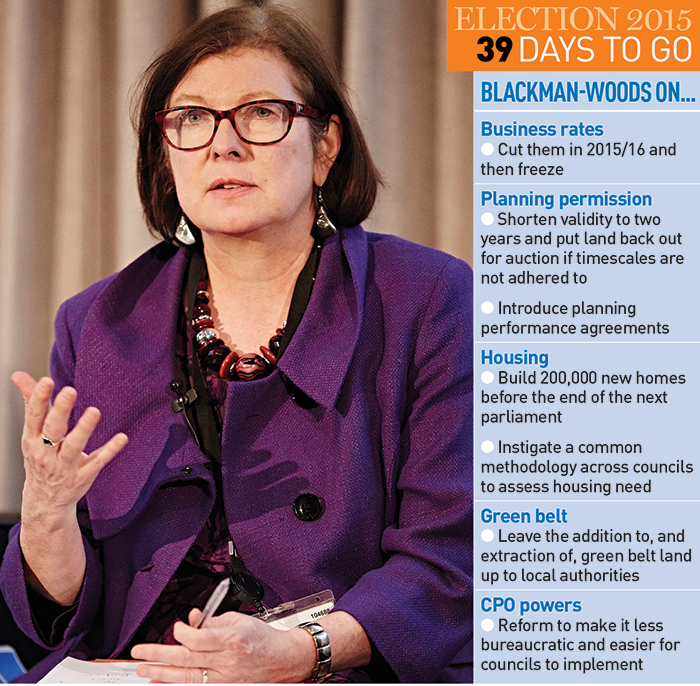As the countdown to the general election gathers pace and purdah begins, Capital & Regional and Mischon de Reya have tempted MPs from the Labour and Conservative parties to discuss their policies for the nation’s towns and cities as part of their Planning for the future: solutions for towns and cities series.
In the first of two events, shadow minister for communities and local government, Roberta Blackman-Woods, outlined Labour’s priorities.
Planning and partnership seemed to be at the heart of many of the party’s proposals.
“People do not often link planning to what happens on the high street, but we have and our policy is very much to keep the National Planning Policy Framework and to keep the section in it about town centres and the need to plan for them,” Blackman-Woods told an audience of retailers, landlords, local authorities and agents.
For Labour, this means a well-thought-out and long-term neighbourhood plan with a specific focus on the high street and town centres.
“We want all local authorities to have a local plan ready by 2016 and within that there should be plans for the high street and town centres,” said Blackman-Woods. “We would encourage local authorities, when they are drawing up their local plan, to develop a neighbourhood plan at the same time. For those that have a plan in place, they should do it at the five-year review. This will roll out everywhere over time in a sensible and manageable way.”
Although Blackman-Woods said Labour supported change of use, agreeing that sometimes a café needed to become an arts centre or a shop needed to be turned into offices, the party believed that permitted deve-lopment rights had to be controlled.
“Permitted development is almost a distraction from what we really need,” she said, “which is a long-term policy for regenerating the high street.”
She said change of use needed to be under the control of the local authority, with input from the local community.
“I think it is very important that local people have a say on what happens on the high street and in town centres,” she said. “We want more diversification on the high street. We want more culture, more leisure. We want these to be really pleasant places for people to socialise and to shop and to go to work, and if we are going to do that, we are going to have to do it in line with what local people want.”
Blackman-Woods used the example of the plethora of payday lending shops that are opening on high streets and a much-voiced concern to her from local authorities about the change of use of offices to residential.
“I have a number of local authorities writing to me saying this is a disaster and please don’t continue this policy if you get elected because we are going to end up having not enough office accommodation in our town centres,” she said.
Blackman-Woods said PDR meant that local authorities, BIDS, town teams or any body that ends up trying to plan for the future of the high street will have no power to do anything because “no matter what you want, someone can come along and use a PDR and local people have no say”.
“It is a very damaging policy,” she added.
Instead, Labour wants local authorities to have the power to say no to change of use and to keep a shop as a shop if it thinks it can work with local businesses to get a pop-up or start-up business operating from it.
“We are going to end up with high streets that do not function very well or do what the local community wants them to do unless we get some reasonable say over what uses are on the high street,” Blackman-Woods told the audience. “We need to have vibrant high streets, so we have got to make sure local authorities have the tools to deliver.”
But with a real lack of resources, just how local authorities will achieve this is a major task – and one that she said Labour was aware of.
Blackman-Woods concluded: “We have to tackle the resources in local authorities or none of this going to happen.”












